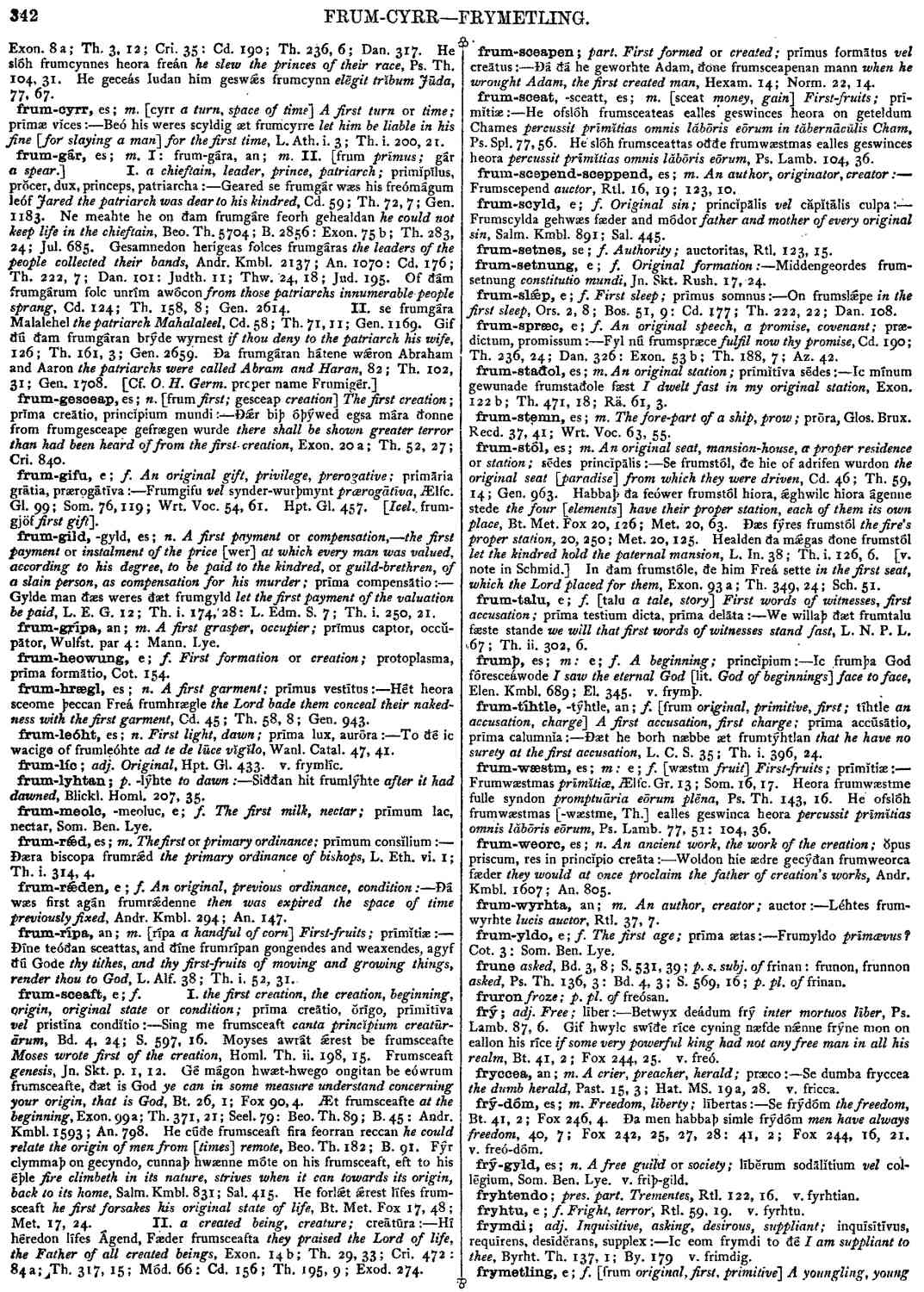frum-gár
- noun [ masculine ]
-
Geared se frumgár wæs his freómágum leóf
Jared the patriarch was dear to his kindred,
- Cd. 59 ;
- Th. 72, 7 ;
- Gen. 1183.
-
Ne meahte he on ðam frumgáre feorh gehealdan
he could not keep life in the chieftain,
- Beo. Th. 5704 ;
- B. 2856: Exon. 75 b ;
- Th. 283, 24 ;
- Jul. 685.
-
Gesamnedon herigeas folces frumgáras
the leaders of the people collected their bands,
- Andr. Kmbl. 2137 ;
- An. 1070: Cd. 176 ;
- Th. 222, 7 ;
- Dan. 101: Judth. 11 ;
- Thw. 24, 18 ;
- Jud. 195.
-
Of ðam frumgárum folc unrím awócon
from those patriarchs innumerable people sprang,
- Cd. 124 ;
- Th. 158, 8 ;
- Gen. 2614.
-
se frumgára Malalehel
the patriarch Mahalaleel,
- Cd. 58 ;
- Th. 71, 11 ;
- Gen. 1169.
-
Gif ðú ðam frumgáran brýde wyrnest
if thou deny to the patriarch his wife,
- 126 ;
- Th. 161, 3 ;
- Gen. 2659.
-
Ða frumgáran hátene wǽron Abraham and Aaron
the patriarchs were called Abram and Haran,
- 82 ;
- Th. 102, 31 ;
- Gen. 1708.
Bosworth, Joseph. “frum-gár.” In An Anglo-Saxon Dictionary Online, edited by Thomas Northcote Toller, Christ Sean, and Ondřej Tichy. Prague: Faculty of Arts, Charles University, 2014. https://bosworthtoller.com/12535.
Checked: 1